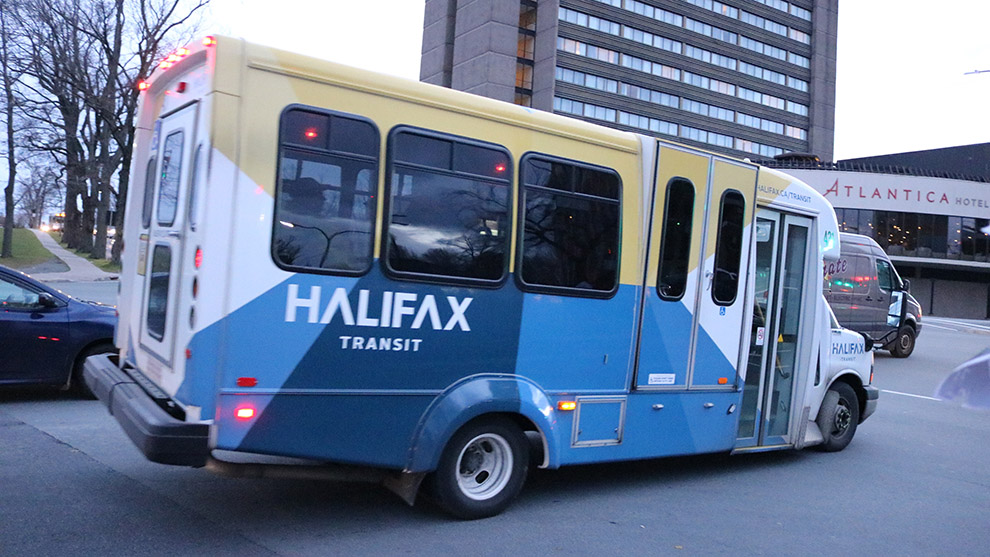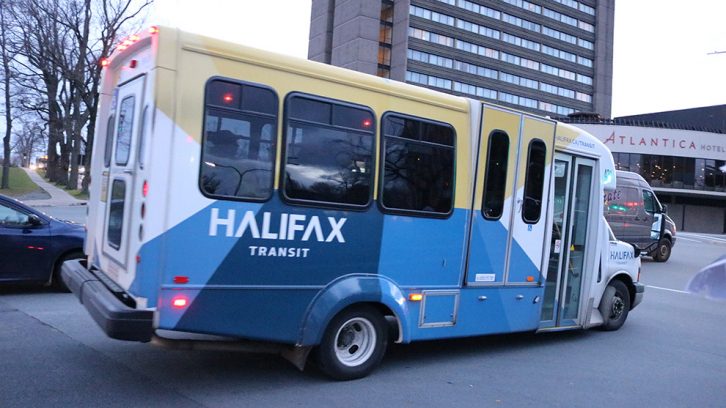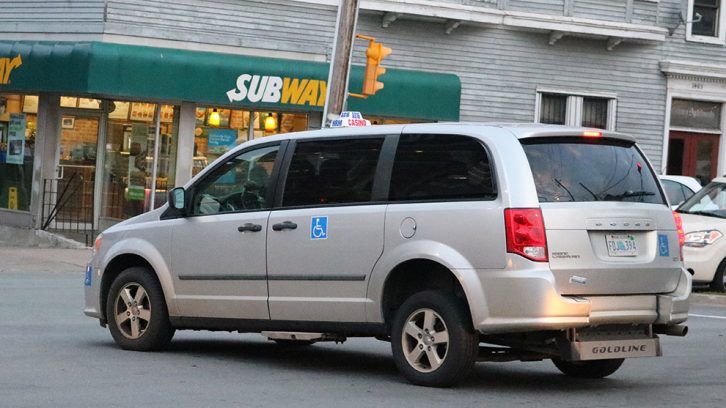Accessible Transit
HRM seeking bids for 40 new paratransit buses
Accessibility advocate says new buses might be ‘huge mistake’

caption
A Halifax paratransit bus.
caption
A Halifax paratransit bus.The Halifax Regional Municipality is looking for companies to supply up to 40 new paratransit buses, but one accessibility advocate says smaller buses are the way to go.
“If they’re making the same buses that they have now I think they’re making a huge mistake,” says Gerry Post, executive director of the Nova Scotia Accessibility Directorate.
On Nov. 24, the HRM issued a request for proposals, which outlined the type of buses it wants and how potential contractors could submit their bids.
Currently, the HRM has 41 paratransit buses in its fleet. By 2021, it’s looking to add 10 new buses and replace 21. Related stories
“Just because we’re asking for 40, doesn’t mean we’ll be buying 40,” says Nick Ritcey, an HRM spokesman.
‘Too large for the need’
In June, Post made a presentation to the HRM’s Transportation Standing Committee, advocating for smaller paratransit vehicles that hold fewer people.
Post, who uses a wheelchair, says the current buses are “way too large for the need.”
“I mean, I’ve been on it and if there’s one more person on it I’d be surprised,” says Post. “Usually it’s one person on a bus that would sit maybe eight or nine people.”
The request for proposals says that new paratransit buses should accommodate up to 12 seats, with a minimum of four wheelchair accessible spots.
Paratransit buses are part of the Halifax Transit’s Access-A-Bus program, which is designed for people with disabilities who require door-to-door transit. There are no set routes, and people often need to book their trips seven days in advance.
Currently there are approximately 2,000 people registered to use this service.
Post says that the Access-A-Bus system is a necessary service. Access-A-Bus users are charged a regular bus fare, but it costs the HRM $36.95 per one-way trip to supply the service. Smaller buses, he says, would help reduce that cost.
Same budget, better access
At his June presentation, Post also suggested that the HRM could save money by outsourcing accessible transit to parataxis, which he says would cost the HRM $14.51 one way and be more convenient to passengers.
“It’s not as if we’re reinventing the wheel. It’s the way a lot of the services across Canada for these operate is with partnerships with the taxi industry,” says Post. “On the same budget we’d double productivity.”

caption
An accessible taxi-van.Cities like Winnipeg, Victoria, Calgary and Ottawa have contracts with taxi companies to supply accessible transportation.
Currently, there are 20 accessible cabs in the HRM, and the Transportation Standing Committee that heard Post’s presentation has requested a staff report to look into contracting out accessible taxi services.
For now, Post says conventional buses are accessible enough to take him where he needs to go, and he commends the HRM for it.
“On the conventional system, the HRM has done an excellent job,” says Post. “And that has deflected quite a few people away from the paratransit, so I have to complement them on that completely.”
Prospective suppliers have until Jan. 19 to submit their bids. The municipality has set March 16 as the tentative date to award the contract to build the buses.
